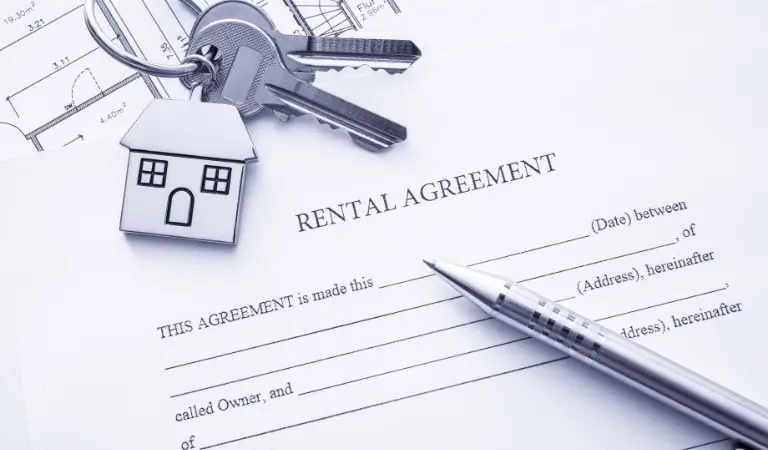Are you a tenant wondering, “Can my landlord raise my rent?” It’s a common concern, and the answer depends on various factors, including your tenancy type and the terms of your tenancy agreement.
In this blog post, we’ll debunk some myths about rent increases, guide you through the process, and explain how to challenge an unfair rent increase. By the end, you’ll clearly understand your rights as a tenant and how to navigate a rent increase effectively.
Contents
Unravelling the Mystery: Can My Landlord Raise My Rent
In an assured shorthand tenancy, a landlord can only increase the rent during the fixed term if there’s a rent review clause in the tenancy agreement. They can’t increase the rent without this clause until the fixed term ends.
If there’s a rent review clause, the landlord must give you at least one month’s notice.
However, landlords can adjust the rent when the fixed term ends or when a new AST agreement is about to begin.
The rental cost should always be clearly outlined in the tenancy agreement.
Generally, landlords contemplate an increase in rent at the outset of a new AST, aligning it with prevailing market rates for similar properties.
Common Myths About Rent Increases
Let’s start by addressing some prevalent myths about new rent increases:
1. Landlords can increase rent at any time. Not true! In most cases, landlords can only increase the rent during a fixed-term tenancy with your agreement.
2. Landlords can increase rent by any amount they want. Also, that’s not true! Any rent increase must be fair and reasonable, considering factors like local market rates and the property’s condition.
3. Challenging a rent increase is difficult and not worth it. False! If you believe a rent increase is unfair, you can challenge it.
Now that we’ve debunked these myths, let’s discuss how rent increases typically work.
In a fixed-term tenancy, your landlord cannot usually increase the rent without your agreement.
However, if you have an assured shorthold tenancy, your landlord might include a rent review clause in the tenancy agreement, allowing them to increase the rent when the fixed term ends. If this is the case, your landlord must give you at least one month’s notice before the increase takes effect.
For periodic tenancies (those that continue after the fixed term ends), landlords can increase the rent, but they must give you at least one month’s notice if you pay rent weekly or monthly. Or six months’ notice if you pay rent quarterly or yearly.
They can only expect a significant increase with evidence that rent in your area supports it. For example, a landlord cannot expect £900 a month without proof that similar properties in your area rent for that amount.
If you think the increase is unfair, you have the right to challenge it. In some cases, a rent increase challenge can go to a tribunal.
Understanding Rent Increases
Rent increases are a part of the rental process, and it’s crucial to understand how they work and what to do if you believe the proposed increase is unreasonable.
By familiarising yourself with the basics of rent increases, you can confidently navigate this aspect of renting.
1. Rent increases are typically not allowed during a fixed-term tenancy without your agreement but can be included in a rent review clause to stipulate how much and how often a landlord can increase your rent.
2. For periodic tenancies, landlords can increase rent with proper notice, but the increase must be fair and reasonable.
3. If you believe the proposed rent increase is unfair, research local rents, discuss it with your landlord, and consider using a section 13 notice to challenge the increase.
4. Remember to stay informed, negotiate when necessary, and don’t be afraid to seek help from organisations like Citizens Advice if you need it.
With this newfound knowledge, you’re now better prepared to handle rent increases and protect your rights as a tenant.

Landlord’s Rights and Responsibilities
Landlords have the right to increase rent but must follow specific legal procedures and respect tenants’ rights. The legal process for increasing rent depends on the type of tenancy agreement and its terms.
Legal Process for Increasing Rent
For assured shorthold tenancies, landlords can increase rent when the fixed term ends, provided they give tenants the appropriate notice.
They can use Form 4, ‘Landlord’s Notice Proposing a New Rent,’ to inform tenants of the increase. If the tenant thinks the increase is unfair, they can challenge it using a Section 13 notice.
Landlords can only increase rent during a fixed term with the tenant’s agreement if there is a rent review clause in the tenancy agreement. If there is a rent review clause, the landlord can suggest a rent increase, but the tenant can challenge it if they believe it is unfair.
For periodic tenancies, the landlord can increase the rent if they give the tenant the correct notice. The amount of notice depends on how often the tenant pays rent.
If the tenant pays rent weekly or monthly, the landlord must give at least one month’s notice. If the tenant pays six months or annually, the landlord must give at least six months’ notice.
In both cases, the landlord can use Form 4 to inform the tenant of the increase. It is important to note that landlords cannot increase rent without a valid reason, even if the fixed term has ended.
They must be able to justify the increase, for example, by showing that local market rates have risen or that they have significantly improved the property.
Tenancy Agreements and Rent Reviews
Creating a solid tenancy agreement with a fair and clear rent review clause is crucial for landlords aiming for a successful rental arrangement.
Tenancy Agreements
A well-drafted tenancy agreement establishes the terms and conditions of the rental, ensuring that both you and your tenant understand your obligations and rights. The agreement should cover aspects such as:
- Rent amount.
- Duration of the tenancy.
- Deposit amount and conditions for its return.
- Maintenance responsibilities.
- Notice periods for termination.
- Conditions for renewing or extending the tenancy.
Rent Review Clauses
To create a fair and transparent rent review clause, landlords should consider the following:
- Specify the review interval (e.g., annually) to ensure a fair rent increase.
- Choose an appropriate index for adjusting the rent (e.g., CPI or local market rates).
- Outline the process for disputing a new rent increase.
- Provide evidence supporting the proposed increase, such as recent market research or comparable rental properties.
By incorporating a clear and fair rent review clause in their tenancy agreement, landlords can protect their interests while maintaining a positive relationship with their tenants.
A well-drafted agreement fosters trust and sets the foundation for a successful rental experience.
Factors Influencing Rent Increases
Various factors, including interest rates, the cost of living, and comparable rents in the area, influence rent increases. Here’s a closer look at each of these elements:
1. Interest Rates: Interest rates can affect the overall economy, and changes in interest rates can impact the housing market. When interest rates rise, borrowing costs increase, impacting property values and rent levels.
2. Cost of Living: The cost of living, such as inflation, taxes, and utility costs, can directly impact rental rates. When the cost of living increases, landlords may need to raise rents to cover expenses and maintain a reasonable profit margin.
3. Comparable Rents: Rental rates in a given area are often influenced by the rent charged for similar properties. By comparing their property to others in the area, landlords can determine if their rent is competitive and adjust accordingly. This often leads to a decision on whether to raise the rent to match market rates.
Understanding the factors influencing rent increases can help landlords and tenants navigate rental agreements and adjustments.
When faced with a rent increase, tenants should consider these factors and discuss any concerns with their landlord.
Related Articles
Do Landlords Have To Give Rent Receipts To Tenants?
Can Letting Agents Charge A Fee For A Tenant Reference?
What Does It Mean To Be A Tenant Guarantor For Rent?
Conclusion
Rent increases are complex and depend on various factors, including the tenancy type and the tenancy agreement terms.
While landlords have the right to increase rent under certain conditions, tenants also have the right to challenge an unfair increase. By understanding the rules and guidelines surrounding rent increases, tenants can navigate this process effectively and ensure that any increase is fair and reasonable.
If you need clarification about your rights or the legality of a proposed rent increase, always seek advice from a trusted source, such as gov.uk or your nearest Citizens Advice.

